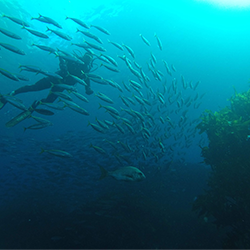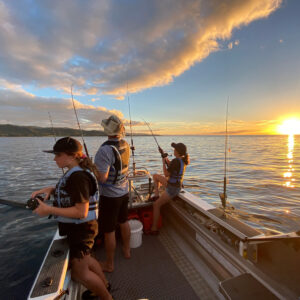It is difficult to manage wild resources such as fish. Fish are constantly on the move. It’s easy to ignore what’s happening beneath the surface. But when management fails, us Kiwis bear the brunt of it.
Mismanagement means fewer fish and a less productive marine environment. Fish belong to the people, not just those who invest in quota ownership.
There is no back up when fish stocks collapse. It can take years or even centuries for ecosystems to rebuild. The good news is that collapse can be averted by the Minister of Oceans and Fisheries making more careful, precautionary decisions about how much fish we extract and how we harvest those fish.
Our reality is that we have not had a proper stock assessment for less than half the fish species in the Quota Management System. In the absence of this essential data, a precautionary approach requires conservative catch limits. Instead, the system is geared towards maximising catches.
This is not surprising given that the system is set up so quota holders have a major influence on where research funding is spent. This means that research is targeted towards fish stocks that may deliver greater financial returns, not necessarily the fish stocks that are depleted and need rebuilding.
This completely ignores the interconnectedness of marine ecosystems. If one fish stock collapses this can easily have a flow-on effect on other species. For example, if we wipe out whole schools of bait fish this affects food availability for kahawai, kingfish, dolphins, whales and even seabirds.
We need to be taking a precautionary approach rather than waiting for a fishery to collapse to indicate that something is wrong.
A precautionary approach means we are not risking the potential collapse of our marine environment. Our ocean is too precious to put at risk as it holds value for many of us.
Whether you depend on the ocean to make a living, or you just enjoy a walk along the beach, everyone has an interest in a healthy ocean.
As the environment becomes increasingly unpredictable with flooding events, rising sea temperatures, and invasive seaweeds, our fish are becoming more vulnerable to parasites and human induced threats.
It’s indisputable that the world is changing around us. We need to change with it. If we want our kids to inherit a thriving ocean with an abundance of fish, we need to think about how we can individually and collectively reduce our impact on the seas we love.





